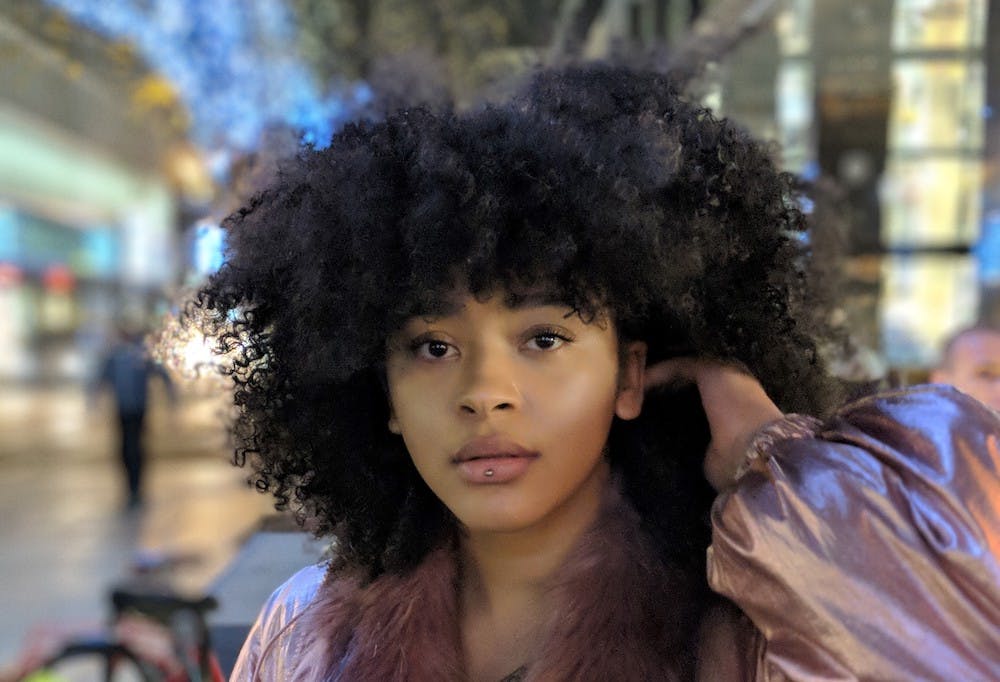
With her CapitalXTRA radio show and an inspiring TedxTalk under her belt, Yinka Bokinni is a force to be reckoned with. And what’s better? She knows it. But the journey to be where she is today hasn’t been easy. Here we chat bereavement, displacement, and the power of the #MeToo movement
Yinka, we heard you enjoyed our April issue with Alexandra Burke?
Yes! I loved it. I’m a big fan of Alexandra; she’s gone through so much in such a short amount of time. I’ve also lost my mum, and am pursuing a career in the media. I relate to when she says that you want someone to be there, to tell you that you’re doing a great job, and that isn’t there any more.
Alexandra wasn’t ready to get professional support for her grief, is that something you’ve considered?
My mum passed away almost 10 years ago. I was only a teenager, and I’ve never gone to get counselling. Maybe I should have when I was first dealing with the grief – it’s something that definitely would have helped me. I was talking to someone the other day and they said it was never too late, so maybe in the future.
You graduated with a law degree, but went into radio. Did you ever experience a feeling of displacement after uni?
Completely. The only thing that I knew was that I didn’t want to go into law. I didn’t want to work in an office, I don’t want to read, or argue. And it’s quite an overwhelming feeling when you know what you don’t want to do, but you have no idea what you do want to do.
What’s your advice for those feeling overwhelmed after uni?
You need to understand that you’re not on a time limit. You don’t have to be ecstatic with your job, just not hate it. It’s about finding something that doesn’t affect you negatively.
You wrote a blog post about your #MeToo experiences. What made you want to share that?
So many women are affected by it. I have four sisters, and all of them have been affected by harassment. The post was talking to those girls, and those who think that the things that have happened to them define them. You’ll be walking down the street and a man will follow you, and you’ll be like, it’s too late and I shouldn’t leave the house this late. That isn’t OK.
Why do you think it’s so important we take this seriously?
Because it gives the victim clarity. I think the worst thing is when you’re not sure if something happened. And you question whether it’s harassment, like, he grabbed me and I didn’t like it, but did he mean to? It took the MeToo movement for me to realise how serious it is.
In your TedxTalk on ‘The Myth Of Escaping The Ghetto’, you talk about growing up on a council estate in Peckham. How has that background shaped the person you are today?
I’ve experienced things that people wouldn’t think a person as positive as I am would have experienced. I grew up in the same block as Damilola Taylor, although I don’t like to dwell on it. But the reason why I think it’s important for me to explain, is that it goes to show that no matter where you’re from, you can still have a positive outlook.
Where do you get that positivity from?
There have been times where it has been physically impossible for me to get out of bed. It may sound a bit weird, but when I’m not feeling 100% I can read a blog post back, or I’ll watch my TedxTalk and think, oh my God, this girl is so inspiring. It’s me, but a different version of me, when things weren’t feeling so bad.
Tune into Yinka’s CaptialXTRA show, Monday to Thursday from 7pm–10pm, and Saturdays from 9am–1pm. Follow Yinka on Instagram @yinkabokinni

